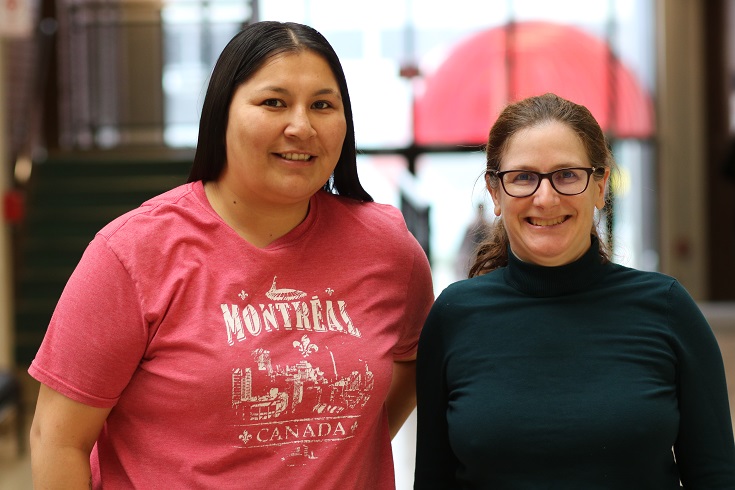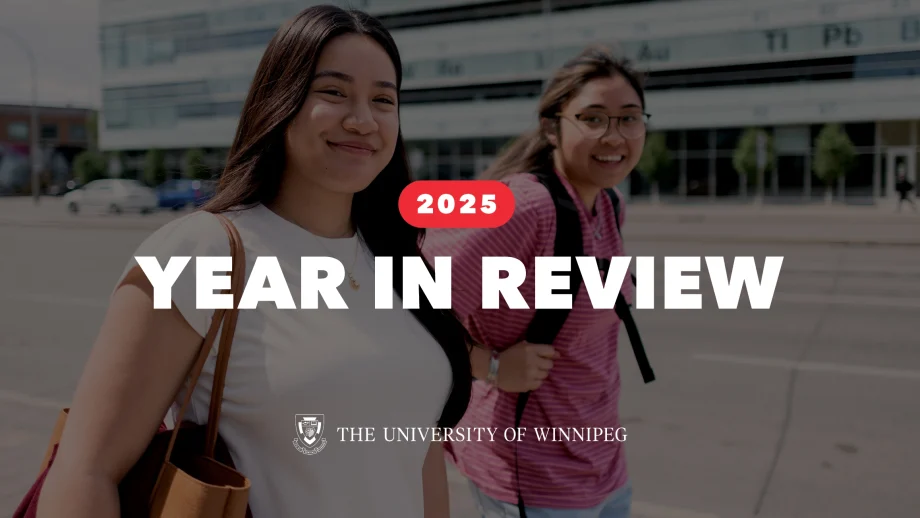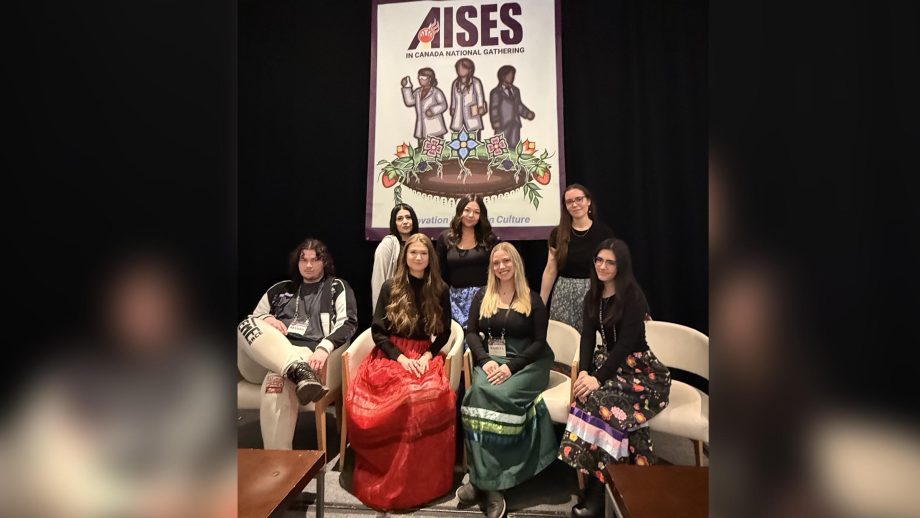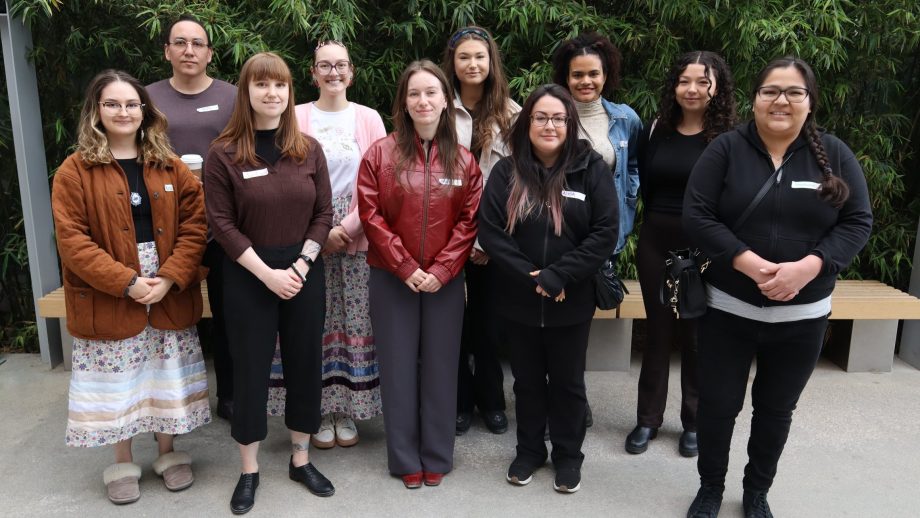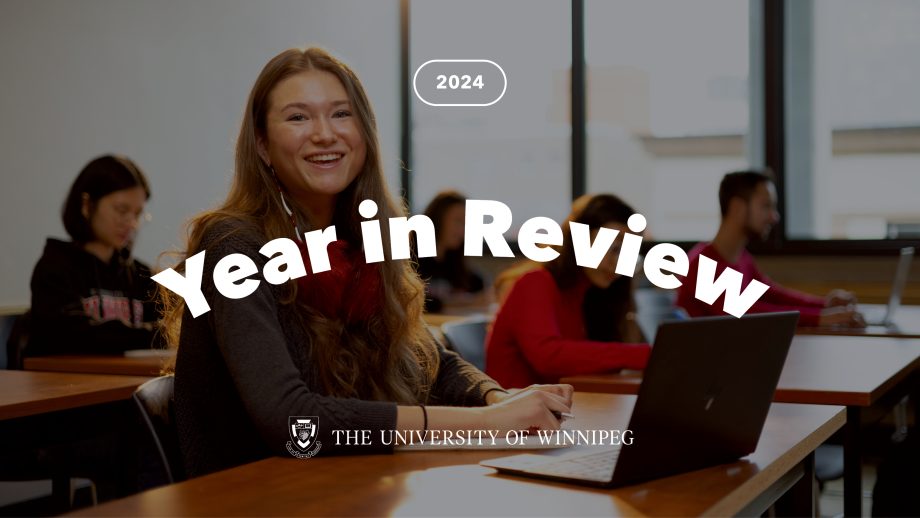Canada’s National Indigenous Peoples Day takes place Sunday, June 21; a time to celebrate the unique heritage, diverse cultures, and outstanding achievements of First Nations, Inuit, and Métis peoples. At The University of Winnipeg, this is a time to pause and recognize the many talented Indigenous leaders and academics on campus.
One of the places where the leadership and talent of Indigenous students shines is the Indigenous Summer Scholars Program (ISSP). Each year, senior Indigenous undergraduate students and recent graduates of undergraduate programs, work with UWinnipeg researchers to support research projects that grow our understanding of a range of issues.
Diverse research opportunities
This year’s Indigenous Summer Scholars will spend June 1 to August 21, 2020 researching such diverse questions as human influences on water quality, innovations for sustainable food systems, Indigenous medicinal plants of the prairies, Indigenous language teaching resources, and more. In the first week of the program, the scholars participated in an opening teaching and sharing circle led by Elder Sharon Pelletier. This gave students a chance to participate in a smudging through Zoom.
Dr. Lorena Fontaine is Cree-Anishinabe and a member of the Sagkeeng First Nation. She is an associate professor in the Department of Indigenous Studies, and will be working with Urban and Inner City Studies student Martina Saunders, a proud Ininew Iskwew from York Factory First Nation, on a project aimed at building a comprehensive online database of teaching resources and curricula for Indigenous languages in Manitoba.
“What excites me most about the ISSP program is getting to meet other students and learning about each other’s experiences and working as a team,” said Saunders. “I look forward to getting the experience in research and so far it feels like an entire new world has opened up in the revitalization of our Indigenous languages.”
Indigenous Summer Scholar Melissa Anderson, grew up in Fox Lake Cree Nation. She is working with Dr. Melanie Martin this summer.
While Martin’s lab has gone virtual – with researchers working from home – Anderson will be making quantitative measurements of the uniformity of images acquired from a sample holder she created prior to the shutdown. She will also be reviewing yet-to-be published data sets aimed at changing the way neurodegenerative diseases are diagnosed.
“My dream is to be a researcher in the medical physics field, so that I may contribute toward finding cures for illnesses such as kidney disease, heart disease, and diabetes and its complications,” said Anderson. “These are a sample of the diseases which Indigenous people are more susceptible to with statistically higher rates than the general population.”
Meet the 2020 Indigenous Summer Scholars and researchers
Hosted by UWinnipeg’s Faculty of Graduate Studies, ISSP strengthens the pathways for Indigenous students to move into advanced study and, ultimately, into leadership roles in various sectors. Scholars are paired with faculty members, many of whom are involved in Indigenous research. The summer scholars receive training stipends to participate in the program, which consists of a series of workshops and discussions exploring a variety of research skills in addition to the opportunity to practice and hone those skills in a specific research project.
Melissa Anderson is working with Dr. Melanie Martin, from the Department of Physics, on Measuring Axon Diameters in the Mouse Brain.
Cadie Arbez-Rondeau is working with Dr. Athar Ata, from the Department of Chemistry, on Antibiotic Lead Compounds from Endophytic Fungi of Indigenous Medicinal Plants of Prairie Provinces.
Mohamed Crossman-Serb is working with Dr. Nora Casson, from the Department of Geography, on Human Influences on Water Quality.
Sarah DeLaronde is working with Dr. Jaime Cidro, from the Department of Anthropology, on Kishaadigeh, an Indigenous-led health research project developed by and with Indigenous communities and organizations to empower health research initiatives that reflect their priorities.
Sierra Hill is working with Dr. Serena Keshavjee, from the Department of Art History, on curatorial preparation towards the exhibition, The Visual Culture of Ghosts.
Amy Jackson is working with Dr. Mark Ruml, from the Department of Religion and Culture, on Indigenous Spiritual Biography as the Matrix for Truth and Reconciliation.
Meagan Malcolm is working with Dr. Jeannie Kerr, from the Faculty of Education, on Student-Led Decolonial Movements in Higher Education: A Case Study of the Indigenous Course Requirement at The University of Winnipeg.
Kaliesa McGillvray is working with Dr. Roewan Crowe, from the Department of Women’s and Gender Studies, on Swarming the Greenhouse Artlab: Artistic Encounters Bee EcoCultures in the Age of Chthulucene – The Arc/Hive.
Greg Meconse is working with Michael Dudley, from The University of Winnipeg Library, on Indigenous Linguistic Knowledge in the University of Winnipeg Library.
Caitlin Mostoway Parker is working with Dr. Janis Thiessen, from the Department of History, on The Manitoba Food History Project.
Ben Roloff is working with Dr. Mavis Reimer, Dean of Graduate Studies and Professor of English, on the Six Seasons of the Asiniskow Ithiniwak: Reclamation, Regeneration, and Reconciliation production team.
Martina Saunders is working with Dr. Lorena Fontaine, from the Department of Indigenous Studies, on the Manitoba Indigenous Languages Teaching Resource Database.
Kirstin Witwicki is working with Dr. Shailesh Shukla, from the Department of Indigenous Studies, on Indigenous Wisdom and Innovations for Sustainable Food Systems and Future.
ISSP is designed to strengthen pathways for Indigenous students to move into advanced study and leadership roles, to re-affirm the significance and centrality of Indigenous peoples’ experiences and ways of knowing, and to create a network of Indigenous scholars and allies on campus.
Learn more about UWinnipeg’s 2020 Indigenous Summer Scholars and ISSP Researchers.
Learn more about National Indigenous Peoples Day, and tag #UWinnipeg and #NIDPCanada on social media to let us know how you are celebrating.

